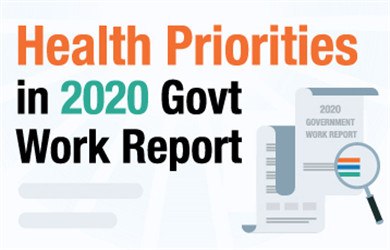FAQs on vaccination
1. Is it certain that the recipient will not get the infectious disease after inoculation?
Vaccination is the most economical and effective means to prevent and control infectious diseases, and although the success rate is not 100 percent the protection rate of most vaccines is more than 80 percent. Because of special characteristics of individual recipients, such as low immune response ability and other factors, immune failure may occur after vaccination. However, a large number of studies have proved that even it occurs, the clinical manifestations of vaccinated patients are much lighter than those without vaccination.
2. What is the difference between domestic and imported vaccines? How to choose?
All vaccines on the market in China are qualified and made available only after strict testing by the State. The safety and protective effect of both domestic and imported vaccines have been confirmed. People can make their own choice freely.
3. Why should I stay for at least 30 minutes after vaccination?
A very few people may have allergic reactions after vaccination for individual reasons. Statistics show that most anaphylactic shock occurs within 30 minutes after inoculation. Dangerous risks arise if it is not under the supervision of medical personnel. Therefore, the inoculation site must be equipped with doctors and emergency medicine. If an abnormal reaction occurs after vaccination, it should be immediately reported to the vaccination personnel or the center for disease control and prevention.
4. How to deal with the general allergic reaction after vaccination?
After vaccination, the recipient should stay in the inoculation facility for at least 30 minutes.
Some people will have allergic reactions after vaccination, such as low fever, local redness and swelling, and may experience systemic discomfort, such as fatigue, loss of appetite and other symptoms. These symptoms usually last for 1 to 2 days and can disappear without treatment. Recipients should have a rest, drink more water, keep warm and avoid secondary diseases. If serious allergic reactions occur, they should immediately seek medical treatment.
Chinese source: www.nhc.gov.cn


